QuestionI wonder if you can help? I have noticed that my bourke's beek is more claw-like than previously. He is a lazy boy and not keen on using his cuttlefish. Is there anything else I can try. I am concerned it may affect his feeding. Very many thanks.
AnswerHi Rosey - how nice to know you're an observant and involved owner like this (wish there were many more like you!).
The cuttlebone is important to have in their cage, but not all birds will use it. You might want to try a mineral block - or start trying various 'flavored' cuttles and minerals stones - some are of different textures too.
Giving him interesting wood chews also help - as does the harder shelled nuts. Though nuts should be limited with caged birds, they are still necessary. Tap a walnut with a mallet/hammer until slightly cracked and offer it to him.
We also install entire planks of wood sometimes since our birds (mostly macaws) think they're destroying a wall or something by having access to it. Always be sure that when you get wood from Home Depot or Loews or wherever - that's it absolutely, positively UNtreated wood. It will usually be paler in color and cheaper in price than the 'treated' woods. Don't just ask a clerk, ask the clerk to check the manifests (delivery sheets) to be sure. It's worth being a bit of a pain to insure your bird's life.
Most of these places will also cut wood for you - sometimes for a few cents, up to 25 cents a slice. A 1" or 2" x 4 board cut in 1' pieces can last quite some time. We simply screw in a brass or stainless steel cup hook (NEVER use zinc) into one end and hook it in the cage just as simple as that.
Finally, seeing an avian vet or any vet who is experienced with birds would be a wise thing to do. There are not only some diseases that present with beak overgrowth, but pretty simple procedures the vet can undertake to file a problem beak down (never try this on your own - the beak may bleed and become an emergency situation).
It's always, always best to be over-protective when it comes to birds. They are the top 'fakers' in nature - hiding illness and seeming perfectly normal until it's too late. So it's up to us to notice the little, tiny things early and act on them - being better safe than sorry.
Let me know how you make out.
See us at www.geocities.com/animalrelief_info

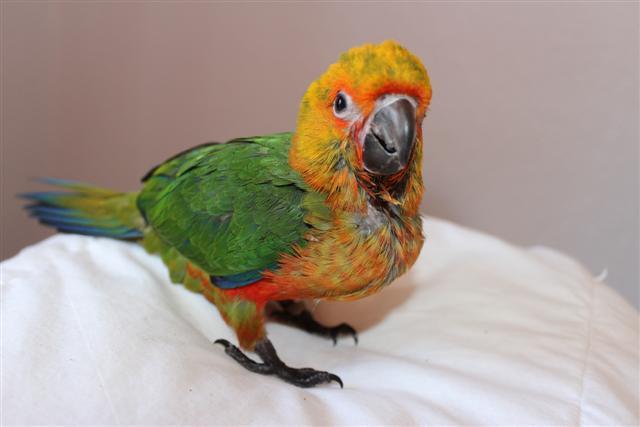 Jenday Conure Weaning?
Question
Castor the Conure
Hi
I have a 9 week o
Jenday Conure Weaning?
Question
Castor the Conure
Hi
I have a 9 week o
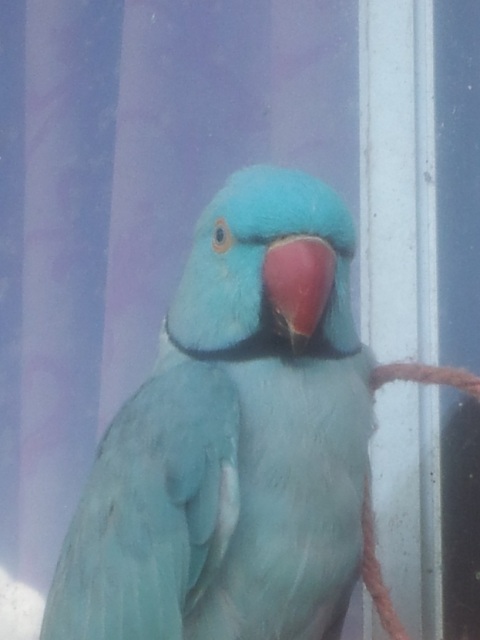 RE: Indian Ringneck probems
Question
Indy our Ringneck
Thank you for your he
RE: Indian Ringneck probems
Question
Indy our Ringneck
Thank you for your he
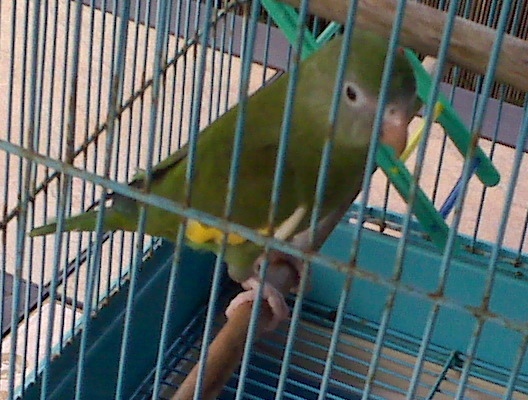 What type of parrot is this?
Question
Friendly bird
A week ago ths small parrot flew
What type of parrot is this?
Question
Friendly bird
A week ago ths small parrot flew
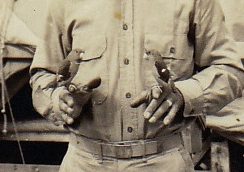 ID Birds
Question
Panama Birds
My uncle served in Panama in 1941
ID Birds
Question
Panama Birds
My uncle served in Panama in 1941
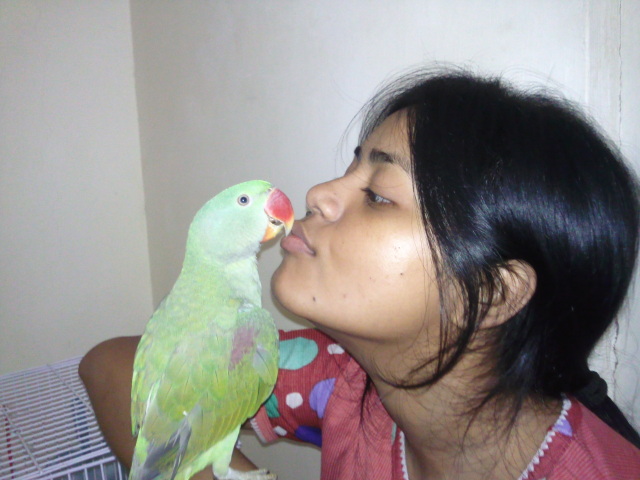 can i give my parrot chole(chana) called in hindi
Question
my little chaddi alexa
dear sir,
can give chan
can i give my parrot chole(chana) called in hindi
Question
my little chaddi alexa
dear sir,
can give chan